
Friday 26 September 2025
7pm
Barbican Hall
Guildhall Symphony Orchestra & Chorus
Daniela Candillari conductor
Vicente Chavarría chorus director
Harry Jacques tenor
Jan-Magnar Gard baritone
Redmond Sanders baritone
Skip to:
Programme
Dobrinka Tabakova
Orpheus’ Comet
Felix Mendelssohn
Symphony No 4 in A major, Op 90 ‘Italian’
Interval
Giacomo Puccini
Messa di Gloria
The performance duration is approximately
1 hour and 50 minutes, including a 20-minute interval.
Guildhall Symphony Orchestra & Chorus
Daniela Candillari conductor
Vicente Chavarría chorus director
Harry Jacques tenor
Jan-Magnar Gard baritone
Redmond Sanders baritone
Digital Programmes
Please silence your device and lower the brightness of your display.
This digital programme is intended for mobile devices and may be viewed throughout the performance. If you would prefer to bring a hard copy with you, please download a printer-friendly version below:
Do you have thoughts on our recent switch to digital programmes? Fill out our Audience Feedback Form.
Barbican
Please make sure that digital watch alarms and mobile phones are silenced during the performance.
Please try not to cough until the normal breaks in the performance.
In accordance with the requirements of the licensing authority, it is not permitted to stand or sit in any gangway.
No smoking or eating is allowed in the auditorium.
No cameras or any other recording equipment may be taken into the hall.
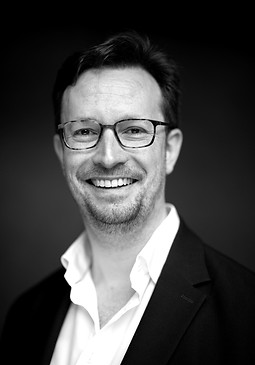
Photo © Em Davis
Welcome
Welcome to Guildhall Symphony Orchestra’s season opener. You join us as we celebrate the start of the academic year and introduce our new classical musicians – at least, as many of them as will fit on the Barbican Hall stage – alongside some of their more established orchestral colleagues. They have spent the past few days rehearsing, making friends and, in many cases, just starting to discover London. It’s an exciting time!
To match the offstage excitement, we have an emphatically energetic programme on stage. The first half is for the orchestra alone and opens with the fanfare Orpheus’ Comet. This is a busy, buzzing work that has operatic connections, echoing the opening of Monteverdi’s Orfeo. Its composer Dobrinka Tabakova is an alumna and we are delighted to be performing her music again here at Guildhall. Felix Mendelssohn’s ‘Italian’ Fourth Symphony follows; there are few sunnier pieces of music than this. Playful and positive, it encapsulates the vigour with which we begin our year.
The evening’s climax after the interval is Puccini’s Messa di Gloria, written when the composer was still a student; a youthful religious work, but one in which opera is again not far off, many melodies anticipating the great opera-maker Puccini was to become. Performed tonight by GSO with our chorus of new students, this piece also allows us to present three outstanding Guildhall vocal soloists, Jan-Magnar Gard, Harry Jacques and Redmond Sanders.
It is a particular pleasure that conductor Daniela Candillari joins us for the first time to lead these three wonderful pieces. I hope you enjoy our burst of musical energy tonight and look forward to seeing you at many more Guildhall School events throughout the year. Thank you for joining us!
Armin Zanner
Vice-Principal & Director of Music
%20Ben%20Ealovega_edited.jpg)
Photo © Ben Ealovega
Dobrinka Tabakova (b. 1980)
Orpheus’ Comet (2017)
5 minutes
Bulgarian-born Dobrinka Tabakova, who graduated with a BMus and an MMus from Guildhall School before gaining her PhD from King’s College London, wrote Orpheus’ Comet in 2017 while she was Composer-in-Residence with the BBC Concert Orchestra.
Two highly contrasting influences colour this work, both of them connected to the European Broadcasting Union, which co-commissioned the piece along with the BBC. Taken by the idea of Monteverdi’s fanfare from the opening of his 1607 opera Orfeo (‘Orpheus’) – the signature music of Euroradio (the EBU’s radio division) – she began reading other stories around Orpheus, the musician and poet from Greek mythology.
One legend, from Virgil’s Georgics, tells how the shepherd and beekeeper Aristaeus has lost his bees as punishment for his role in the death of Euridice, wife of Orpheus. “As the piece began to take shape,” Tabakova says, “it was the buzzing bees that left a strong impression on me and transformed into musical material.”
The bees buzz and circle from the start, after which a low, slow chorale emerges. The busy movement continues in the background as the chorale becomes more melodic and eventually culminates in Monteverdi’s joyous fanfare.
_edited.jpg)
Felix Mendelssohn (1809–47)
Symphony No 4 in A major, Op 90 ‘Italian’ (1833, rev. 1834)
I. Allegro vivace
II. Andante con moto
III. Con moto moderato
IV. Saltarello. Presto
28 minutes
In his early twenties, as was customary for well brought-up and well-off young adults, Mendelssohn made a European Grand Tour, in his case lasting over three years. In 1829 he visited England – where he mingled with dukes, counts and viscounts, in addition to the leading musicians of the day; he visited the House of Commons and St Paul’s Cathedral, and watched Shakespeare plays. He also conducted the first UK performance of both his First Symphony and A Midsummer Night’s Dream overture. It was on his Scottish visit soon afterwards that he was inspired to write the ‘Scottish’ Third Symphony and the overture The Hebrides, inspired by a boat ride to Fingal’s Cave. By October 1830 Mendelssohn was frequenting the art galleries of Venice and Florence, and the following month he was in Rome, where he wrote of his “heavenly surroundings”. “I feel as if I were entirely changed since I came here …,” he wrote. “My mood is so tranquil and joyous.”
In February 1831, still in Rome, he reported, “I have once more begun to compose with fresh vigour, and the Italian symphony makes rapid progress; it will be the most cheerful piece I have yet composed, especially the last movement”. It wasn’t until he had returned home to Berlin the following year though, that the impetus struck to pick up work again on the symphony, thanks to a commission from London’s Philharmonic Society, who commissioned him to write a symphony, along with an overture and a vocal piece for the sum of 100 guineas.
The first movement is where the Italian sun and Mendelssohn’s high spirits can most readily be heard. Over a tightly sprung bed of fast-tooting winds (a device popular with Berlioz, whom Mendelssohn met during his Rome visit), the violins open with a theme alive with energy and exuberance. A second theme is warmer but displays a dotted-rhythm resemblance to its predecessor. A third theme, in the minor, provokes chattering imitation, generating a freewheeling expansiveness, but nothing can mute the movement’s boundless optimism.
By contrast the Andante – perhaps inspired by the Holy Week processions Mendelssohn witnessed in Rome – implies a solemn parade with its doleful, hymn-like tune (oboes, bassoons and violas in their middle ranges), soon sweetened by the two flutes, over the steady tread of a walking bass line. A passage for staccato strings (playing short, detached notes) suggests a hint of the macabre.
The confusingly labelled ‘Con moto moderato’ is a minuet-and-trio movement, opening with a breadth that seems to pre-empt Brahms, and featuring a gently undulating accompaniment to match. Four horns lend a sense of the outdoors to the central Trio section.
Marked ‘Saltarello’ after the lively Medieval Italian dance, the finale – the movement Mendelssohn anticipated would be especially ‘cheerful’ – shows off the composer’s particular skill when it comes to featherlight scherzos (another feature he shared with Berlioz). It’s not the first movement in this symphony to call for sustained quick, well-articulated delivery from the orchestral players.
Interval (20 minutes)

Giacomo Puccini (1858–1924)
Messa di Gloria (1878/1880)
I. Kyrie
II. Glora
III. Credo
IV. Sanctus – Benedictus
V. Agnus Dei
45 minutes
Harry Jacques tenor
Jan-Magnar Gard baritone
Redmond Sanders baritone
We know and love Puccini today almost exclusively for his dramatic, melody-laced operas – milestones of the genre – and their embrace of the verismo style that aimed for a new level of gritty realism, as in La bohème and Tosca. But early signs were that young Giacomo would follow in his family’s long line of church musicians: his father, grandfather and great-grandfather before him had held the maestro di cappella position at the San Martino cathedral in the city of Lucca, and all of them composed for the church. But it was after walking more than 12 miles to Pisa to hear Verdi’s Aida as a 17-year-old that Puccini became transfixed by opera. “I felt as if a musical window had opened up to me,” he wrote. At the time he wrote his Messa di Gloria in 1880, however, his own illustrious contribution to the genre still lay firmly in the future.
Following its first performance in 1880 the Messa lay unperformed. It was published only in 1952, nearly 30 years after Puccini’s death, and its first commercial recording came nearly 25 years after that. On its publication the Mass acquired the misleading title ‘Messa di Gloria’ – implying a setting of only the Kyrie and Gloria of the Mass (as was the case with Rossini’s Messa di Gloria of 1820), whereas Puccini’s is a full setting that also includes the Credo, Sanctus and Benedictus, and Agnus Dei.
Puccini’s Messa is more modest in orchestral forces and in scale than Verdi’s Requiem, first performed six years earlier, but it is similarly characterised by an operatic style, and it also shares its predecessor’s dramatic choral outbursts, lyrical solo vocal lines and a symphonic treatment of the orchestra that releases it from its relatively unambitious role in a sacred context. The Messa di Gloria could warrant the same criticism that conductor Hans von Bülow levelled at Verdi’s Requiem: that it was “an opera in ecclesiastical garb”.
The brief Kyrie is mostly infused with sweetness but intensifies in mood for ‘Christe eleison’. The Gloria (the Messa’s longest movement) is itself split into several independent movements, which present a variety of moods and treatments: from the jolly choral opening ‘Gloria in excelsis Deo’ and the quietly solemn ‘Et in terra pax’ to a climactic ‘Laudamus te’. The tenor arrives with ‘Gratias agimus tibi’ and at the end (‘Cum Sancto Spiritu’) comes a grand choral fugue – a section so extravagant one commentator described it as “a grand fugue with moustaches” (i.e. “with bells on”).
Puccini’s Credo – like the Gloria, in several sections – was written separately in 1878 to honour San Paolino, the patron saint of Lucca. Its affirmation of faith lends a seriousness of purpose. The tenor returns to convey the mystery of Jesus’s birth by the Virgin Mary (‘Et incarnatus est’). Lower voices reference the crucifixion, while the full choir dramatically handles the resurrection and the optimism of “the life of the world to come”.
After the choral Sanctus, the baritone takes over in the Benedictus. Tenor and baritone appear together in the Agnus Dei, the music of which Puccini later borrowed in Act 2 of his opera Manon Lescaut. Proof if any were needed that here was a work not only of the church but also of the theatrical stage.
Programme notes © Edward Bhesania
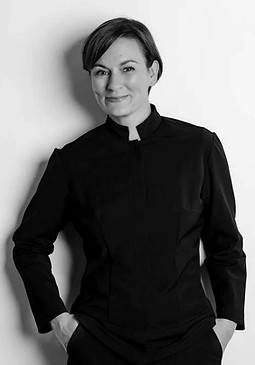
Daniela Candillari
conductor
Conductor Daniela Candillari brings her “confidence and apparently inexhaustible verve” (The New York Times) to opera houses and concert stages throughout North America and internationally. She is renowned for guiding groundbreaking world premieres to the stage “with a sure hand” (The New York Times) as well as her “incisive leadership” (Wall Street Journal) of classical music’s most frequently performed masterpieces.
Candillari’s exciting 2025/26 season of orchestra and opera engagements includes premieres with the Chicago Symphony Orchestra, Canadian Opera Company, London Philharmonic, Royal Liverpool Philharmonic and Sinfonieorchester Wuppertal. She will also continue long-term artistic relationships with Opera Theatre of Saint Louis, where she enters her fifth season as Principal Conductor, Music Academy of the West, and her alma mater, Indiana University’s Jacobs School of Music.
Candillari’s 2024/25 season included world premieres with the St. Louis Symphony Orchestra (Nina Shekhar’s Accordion Concerto) and Opera Theatre of Saint Louis (This House by Ricky Ian Gordon, Lynn Nottage and Ruby Aiyo Gerber), and debuts with Kansas City Symphony, Tucson Symphony Orchestra and Louisiana Philharmonic, and a return to New Orleans Opera.
Her 2023/24 season opened with rave reviews for her “seamless” leadership (The New York Times) of two world premieres: 10 Days in a Madhouse by composer Rene Orth and librettist Hannah Moscovitch at Opera Philadelphia, winner of the Best New Opera Award by the Music Critics Association of North America; and Jeanine Tesori and George Brant’s Grounded with Washington National Opera at The Kennedy Center, a company debut. In previous seasons, she has conducted with the New York Philharmonic, Metropolitan Opera, Deutsche Oper Berlin, Lyric Opera of Chicago, Minnesota Opera, Detroit Opera and Orchestre Métropolitan Montreal.
Candillari grew up in Serbia and Slovenia. She holds a Doctorate in Musicology from the Universität für Musik in Vienna, a Master of Music in Jazz Studies from the Indiana University Jacobs School of Music, and a Master of Music and Bachelor’s degree in Piano Performance from the Universität für Musik in Graz.
Ahead of the performance, we spoke to Daniela about the exciting repertoire in this season-opening concert, her approach to collaboration, and what inspires her work on the podium.
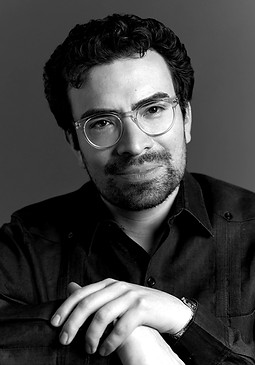
Photo © Matthew Tate
Vicente Chavarría
chorus conductor
Conductor, composer and scholar Vicente Chavarría currently serves as Principal Conductor of the Manchester Chamber Choir and Musical Director of The Handful Chamber Choir (Bath) and Bowes Park Community Choir. He was formerly the Sir Charles Mackerras Conducting Fellow at Trinity Laban Conservatoire of Music & Dance in London, where he afterward served as Musical Director of Trinity Laban Opera. He is also the Founder and Artistic Director of the early music ensemble Lilium Convallium, with whom he has performed across the South of England. He has worked with the Lavenham Sinfonia, Colne Philharmonic Orchestra, Croydon Youth Orchestra, Oxford University Orchestra, Ernest Read Symphony Orchestra and Wimbledon Symphony Orchestra. Recent projects include Errollyn Wallen’s Dido’s Ghost and Monteverdi’s Il ritorno d’Ulisse with Trinity Laban Opera, and deputy Chorus Master at the BBC Symphony Chorus for Stéphane Denève at the BBC Proms, among others.
A versatile musician, he performs with Dowland Works (with Dame Emma Kirkby), the BBC Symphony Chorus, St Martin’s Voices, Mosaic Voices, and is a deputy at St Paul’s Cathedral and HM Chapel Royal, Hampton Court. He has previously performed with LASchola, Bach-Collegium San Diego, the Boston Camerata and Park Collegium (Belgium), among many others. He has performed in masterclasses with Martyn Brabbins, Jac van Steen, Andreas Scholl, Anne Azéma, Xavier Díaz-Latorre and the Hilliard Ensemble, and under the batons of Sakari Oramo, Sir Andrew Davis, Michael Tilson Thomas and Sir Donald Runnicles, among others. He has also performed at the Berkeley and Boston Early Music Festivals. A pupil of Morten Lauridsen and Haris Kittos, his compositions and arrangements have been performed around the world.
A graduate of the Royal College of Music (RCM) in London, he has worked with all of the RCM orchestras and assisted such conductors as Vladimir Ashkenazy, Bernard Haitink, Andrew Gourlay, Maxim Vengerov and Holly Mathieson. He was Assistant Conductor for six productions of the RCM Opera Studio (including conducting the closing night of the Summer 2019 season) and assisted conductor Michael Rosewell at English Touring Opera. He has participated in masterclasses with the BBC National Orchestra of Wales, Welsh National Opera and the Salomon Orchestra. Vicente holds previous degrees from the Universities of Miami and Southern California (USA), and a postdoctoral fellowship at the University of Leuven (Belgium). He was previously the Artistic Director and Founder of the early music ensembles Flos Campi and La Monarca as well as the Fra Angelico Chamber Choir and the Sibelius Camerata, and Director of the Gloria Dei Choir. In his spare time, he enjoys relaxing hobbies such as plane spotting and cooking.
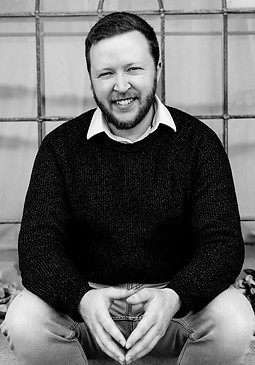
Harry Jacques
tenor
Tenor Harry Jacques originally studied music at Bristol University, later teaching at Oakham School as Organist and Teacher of Music. Chorally, he has sung with numerous cathedral choirs, as a VOCES8 Scholar, and with ensembles including Gabrieli Consort, Polyphony and London Choral Sinfonia. His oratorio work spans Bach, Handel, Haydn and Stainer, supported in part by the Josephine Baker Trust.
Opera experiences have included Waterperry Opera Festival and understudying Nemorino in L’elisir d’amore with Wild Arts. In 2024, he joined Glyndebourne Chorus for productions including Die Zauberflöte, Carmen, The Merry Widow and Tristan und Isolde, also performing at the BBC Proms.
Harry began studying at Guildhall School in 2022 in the Vocal Studies department and has begun his second year in the Opera Studies department, studying with John Evans. Recent roles in scenes at the School include Leicester Maria Stuarda, Mayor Upfold Albert Herring, Roméo Roméo et Juliette, Le Chevalier Dialogues des Carmélites and Essex Gloriana. He will sing Heinrich in Ethel Smyth’s Der Wald and Bruto in Ottorino Respighi’s Lucrezia in Guildhall School’s 2025 Autumn Double Bill.
Harry is supported in his current studies at Guildhall School by the Grocers’ Scholarship and Edith Vogel Bursary.
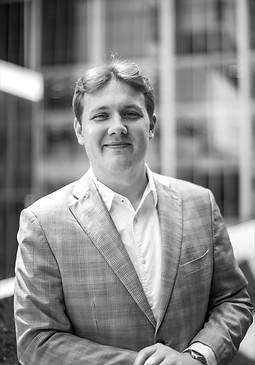
Jan-Magnar Gard
baritone
Jan-Magnar Gard is a Norwegian baritone entering his second postgraduate year at Guildhall School, studying with Robert Dean. He completed his undergraduate studies at the Barratt Due Institute of Music in Oslo, which included a year on exchange at the Scuola di Musica di Fiesole, near Florence.
Dedicated to versatility as a performer, Jan-Magnar has a particular interest in exploring the nuanced demands of a wide-ranging repertoire, spanning oratorio, Lieder, opera and everything in between and beyond. Some of his recent work includes Figaro and Bartolo Le nozze di Figaro at Goodenough College and as a soloist in Handel’s Messiah and Mozart's Requiem in his hometown. As a chorister, he recorded Wagner’s Der fliegende Holländer with Norwegian National Opera, which was recently shortlisted in the Opera category of the 2025 Gramophone Classical Music Awards. He is currently singing chorus with La Nuova Musica in The Royal Opera’s production of Handel’s Giustino.
Next spring, Jan-Magnar will sing the baritone soloist in Mozart’s Requiem at Orkestersalen Fartein Valen at Stavanger Concert Hall with conductor Bjarte Engeset.
Jan-Magnar is supported in his current studies at Guildhall School by the Sir Bryn Terfel Scholarship and Love MacDonald Scholarship.
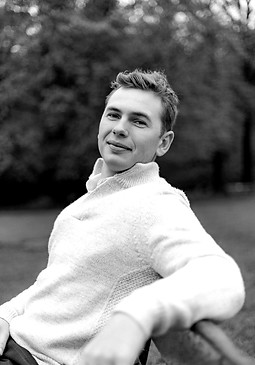
Redmond Sanders
baritone
English Baritone Redmond Sanders began studying in the Vocal Studies department at Guildhall School in 2023 with Susan Waters and is now in his second year of Opera Studies. A finalist in the Guildhall School Gold Medal 2025 and Eastbourne International Singing Competition 2025, and semi-finalist in the Veronica Dunne International Singing Competition 2025, Redmond is also the recipient of the Thierry Mermod Prize, awarded when he was a member of the Atelier Lyrique at Verbier Festival 2024. He is generously supported by the Countess of Munster Trust and is proud to be a 2023 Samling Artist.
Mostly recently, Redmond sang the role of Cappadocian in Richard Strauss’ Salome with Sir Antonio Pappano and the London Symphony Orchestra in the Barbican Hall. Redmond’s previous roles include Antonio Le nozze di Figaro, his international debut on the main stage at the Verbier Festival, Corporal Daughter of the Regiment at Grange Park Opera, and Vater Hänsel und Gretel and Frosch Die Fledermaus at Guildhall School. He will sing Rudolf in Ethel Smyth’s Der Wald and Tarquinio in Ottorino Respighi’s Lucrezia in Guildhall School’s 2025 Autumn Double Bill.
Notable performances off the operatic stage have included Handel’s Messiah, Vaughan Williams’ A Sea Symphony and Songs of Travel, Dvořák’s Stabat Mater and Mass in D, and most recently he was a recitalist alongside Ruby Hughes as a Shipston Song Festival ‘Rising Star’, accompanied by Ian Tindale.
Redmond is supported in his current studies at Guildhall School by the Robert Easton Scholarship and Anne Pashley Opera Scholarship.
Guildhall Symphony Orchestra
Tabakova & Mendelssohn
Violin I
Yuno Akiyama*
Elise Wiesinger
Caroline Durham
Mark Alton
Michelle Kolesnikov
Min Wei
Clara Lacout
George Boyes
Dominic Drutac
Ivelina Ivanova^
Julieanne Forrest
Arabella Thornton
Pak Ho Hong^
Adrian Si
Violin II
Daisy Elliott*
George Lawson
Giulia Pianini Mazzucchetti
Argyro Meleniou
Julie Piggott
Selina Li
Isabelle Allan
Zachary Wood
Joana Vila Chã Ribeiro
Isabella Grant
Xiu Hui Leong
Penelope Boisseau-Hardman
Viola
Rebekah Dickinson*
Shane Quinn
Mat Lee
Eve Quigley
Waverly Long
Joshua Law
Declan Wicks
Riana Tam
Leeloo Creed
Toby Dudley
Cello
George Wilkes*
Lottie Gorrie
Doireann Ni Aodain
Haoran Li
Ji Hong Kim
Camille Kasolter-Platone
Junheng Zhang
Amelia Jack
Ziqi Liao
Double Bass
Aaron Aguayo Juarez*
Izzy Nisbett
Annabel Beniston
Caetano Oliveira
Anton Avis
Becca Whitehouse
Flute
Rachel Howie*
Molly Gribbon (piccolo)
Oboe
Lidia Moscoso*
Elizabeth Loboda
Clarinet
Kosuke Shirai*
Sofia Mekhonoshina (bass clarinet)
Bassoon
Maria O’Dea*
Miriam Alperovich
Horn
Dan Hibbert*
Alice Warburton
Katie Parker
Jacob Eynon
Ping-Wei Wu
Trumpet
Samuel Tarlton*
Dan McKay
Alex Smith
Trombone
Helena Kieser*
Robbie Palmer
Bass Trombone
Jamie Cadden
Tuba
George Good
Timpani
Callum Speirs
Percussion
Bryony Che*
Julie Scheuren
Kevin Ng
* Section principal
^ Guest Alumni player
Names correct at time of publication.
Guildhall Symphony Orchestra
Puccini
Violin I
Yuno Akiyama*
Elise Wiesinger
Giulia Pianini Mazzucchetti
Argyro Meleniou
Julie Piggott
Selina Li
Isabelle Allan
Zachary Wood
Joana Vila Chã Ribeiro
Isabella Grant
Xiu Hui Leong
Penelope Boisseau-Hardman
Pak Ho Hong^
Ivelina Ivanova^
Violin II
Daisy Elliott*
George Lawson
Caroline Durham
Mark Alton
Michelle Kolesnikov
Min Wei
Clara Lacout
George Boyes
Dominic Drutac
Adrian Si
Julieanne Forrest
Arabella Thornton
Viola
Rebekah Dickinson*
Shane Quinn
Mat Lee
Eve Quigley
Waverly Long
Joshua Law
Declan Wicks
Riana Tam
Leeloo Creed
Toby Dudley
Cello
George Wilkes*
Lottie Gorrie
Doireann Ni Aodain
Haoran Li
Ji Hong Kim
Camille Kasolter-Platone
Junheng Zhang
Amelia Jack
Ziqi Liao
Double Bass
Aaron Aguayo Juarez*
Izzy Nisbett
Annabel Beniston
Caetano Oliveira
Anton Avis
Becca Whitehouse
Flute
Jessie-May Wilson*
Hanna Wozniak
Piccolo
Cyrus Lam
Oboe
Laura Ritchie*
Oliver Brown
Clarinet
Margot Maurel*
Pip Tall
Bassoon
Aidan Campbell*
Miriam Alperovich
Horn
Freya Campbell*
Amelia Lawson
Ping-Wei Wu
Trumpet
Florence Wilson Toy*
Charlie Clark
Charlie Cooper
Trombone
Ben Loska*
Christopher Trotter
Bass Trombone
Jamie Cadden
Tuba
Stanley Aitken
Timpani
Sum Yin Ng
Harp
Megan van Uffelen
* Section Principal
^ Guest Alumni player
Names correct at time of publication.
Ensembles, Programming & Instrument Manager
Phil Sizer
Orchestra Librarian
Anthony Wilson
Music Stage, Logistics & Instrument Manager
Kevin Elwick
Music Stage Supervisor
Louis Baily
Guildhall Symphony Chorus
Soprano
Adi Shapiro
Alex McChrystal
Ana Salaridze*
Anna Pärt
Anya Brooksbank
Beatriz Da Silva*
Beth Taylor*
Calla Knudson-Hollebon*
Cerys Smith
Charlotte Du-Cann*
Ciara Byrne*
Claire Wong
Constance Starns*
Dani Croston*
Daria Chudakova*
Emily Andersson*
Emily Overend
Galina Baxter
Georgia Tolson*
Grace Oliver*
Hannah Hughes*
Jiho Park*
Laura LeVoir^
Lizzie Watson
Matilda Allard
Nell Hardingham
Niraali Patel*
Rachel Bird
Sammy Coffey*
Sharona Joshua
Shauna O'Callaghan*
Sophie Costa
Yaping Bai
Yixu Zhao*
Yueliang Zhang
Zoë Jackson^
Alto
Aiwen He
Alaine Garinger
Alma Lawson-Ayeku-Metiu
Birce Kayhan
Cecily Shaw^
Chui Wah (Valerie) Chan
Eimear McCann
Ellie Stamp*
Esther Leung
Imogen Cookson
Josie Evans
Kerstin Sommer
Laima Buineviciute
Lei Wang
Lucía Breslin
Lucy Barratt
Magdalena Wegielnik*
Marianne Ruel^
Melisse Markesteijn
Mia Vojic
Miranda Kettlewell*
Niamh Kearney*
Owen Ravden*
Pansy Lau*
Qianqi Chen
Rosie Lupton
Sinead McEvoy
Teah Collins
Violeta Harus
Wei Kuang*
Yixi Chen
Zeynep Ozden
Tenor
Alasdair MacGregor
Alex Hutton*
Conrad Thorndike
Fred Terry
Frey Lawler
Henry Elliott
Kaijun Pan
Kevin Lyu
Kian Lao
Konstantinos Koukoretsis-Tsen*
Mark Zang
Matthew Lee
Ryan Sheng
Samuel Horton
Sebastian Hill^
Tara Beavon
Thomas Aminfar-Antoniw*
Tim Sung
Zach Knight
Bass
Aidan O’Donnell*
Alan Yu*
Alfred Leishman
Arthur Crewe
Arthur Underwood
Ben Cole
Ben Hendry-Watkins*
Benji Gronlie
Charles Curtin
Cuan Durkin*
Dominic Kamel
Fred Miln*
Isaac Giaever-Enger
James Emerson^
James Housego
James Hughes
James Talboys
Jeremy Herron*
Jingyu Cao*
Joshua Conceicao
Joshua Riano*
Jude Frazier*
Loki Marsh*
Luis Weidlich*
Luke Bartlett
Mylo Pape
Noah Prydal
Oli Davis
Raphael James
Sebastian von Wenden*
Simon Lloyd
Sylvain Murphy
Thomas Young
Tokio Ueno*
Tom Wood
Torin Christopherson
Tristan Ng
Will Jowett*
* Vocal Studies student
^ Opera Studies student
Names correct at time of publication.
Thanks
Special thanks to conductor Frank Zielhorst for helping to prepare the orchestra; chorus director Vicente Chavarría; Linnhe Robertson and Gavin Roberts for preparing the chorus; and to each of the following sectional tutors provided by the London Symphony Orchestra:
Laurent Quénelle violin I
Miya Väisänen violin II
Germán Clavijo viola
Laure Le Dantec cello
Tom Goodman double bass
Elizabeth Drew woodwind
Jonathan Lipton brass, timpani & percussion
Patrick King timpani & percussion
Guildhall School Music Administration
Head of Music Administration
James Alexander
Deputy Head of Music Administration (Planning)
Sophie Hills
Deputy Head of Music Administration
(Admissions & Assessment)
Jen Pitkin
Concert Piano Technicians
JP Williams
Patrick Symes
Music Stage Supervisor
Louis Baily
External Engagements Manager
Jo Cooper
Student Compliance & ASIMUT Performance and Events Systems Manager
João Costa
UG Academic Studies, Composition & Keyboard Departments Manager
Liam Donegan
Music Concert Programmes & Performance Data Manager
Lindsey Eastham
Music Stage, Logistics & Instrument Manager
Kevin Elwick
Opera Department Manager
Steven Gietzen
Strings & Music Therapy Manager
Jack Gillett
ASIMUT & Music Timetable Manager
Brendan Macdonald
Electronic & Produced Music and Collaborative Electives Manager
Barnaby Medland
WBP & Historical Performance Manager
Michal Rogalski
PG Music Studies & Chamber Music Manager
Nora Salmon
Jazz Department Manager
Corinna Sanett
Ensembles, Programming & Instrument Manager
Phil Sizer
Senior Music Office Administrator & EA to the Director of Music & Head of Music Administration
Peter Smith
Music Admissions Manager
Owen Stagg
Vocal Department Manager
Michael Wardell
Jazz Programming & Ensembles Manager
Adam Williams

Forthcoming Events
Quartz Saxophone Quartet
2 October 2025
Milton Court Concert Hall
Celebrated for their dynamic performances, the Guildhall alumni return to the School to launch their new CD, joining forces with the Guildhall Saxophone Ensemble for an exhilarating evening of music.
Guildhall Symphony Orchestra conducted by Joshua Weilerstein
5 November 2025
Barbican Hall
Jessie Montgomery’s Coincident Dances, Ravel’s dazzling Piano Concerto in G major and Tchaikovsky’s dramatic Fourth Symphony feature in this stirring concert conducted by Joshua Weilerstein.
Opera Double Bill: Smyth & Respighi
3–10 November 2025
Silk Street Theatre
Two powerful one-act operas – Ethel Smyth’s Der Wald and Ottorino Respighi’s Lucrezia – explore love, power and resistance through the lens of formidable female protagonists.

Donate now:
inspire the
extraordinary
As one of the world’s leading conservatoires, we cultivate exceptional talent — but we can’t do it without you. Our supporters empower students to thrive, shaping the future of the arts.
Enjoy exclusive events, behind-the-scenes access, and insider insights while making a real impact. Join our community, donate, and choose how you’ll inspire the extraordinary.
visit gsmd.ac.uk/donate-support
or enquire at development@gsmd.ac.uk
Photo © David Monteith-Hodge
Our supporters
Guildhall School is grateful for the generous support of the following individuals, trusts and foundations, City livery companies and businesses, as well as those who wish to remain anonymous.
Exceptional Giving
City of London Corporation
Estate of John Donnelly
The Guildhall School Trust
The Leverhulme Trust
Estate of Evelyn Morrison
John Murray Young Artists’ Fund
Leadership Giving
Foyle Foundation
The Garek Trust
Estate of Brian Hartley
Estate of Eric Pattison
National Philanthropic Trust UK
Principal Benefactors
Amar-Franses & Foster-Jenkins Trust
Foundation for Young Musicians
Estate of Beris Hudson
Christina and Ray McGrath Scholarship
Purposeful Ventures
Nicky Spence Scholarship
Estate of Harold Tillek
Jessie Wakefield Bursary
Garfield Weston Foundation
Estate of Anne Wyburd
Estate of Jane Manning
Major Benefactors
City of London Corporation Education Board
Daniel Craig Scholarships
Dominus and the Ahluwalia Family
Fishmongers’ Company
Leathersellers’ Company
London Symphony Orchestra
Sidney Perry Foundation
Barbara Reynold Award
Rosemary Thayer Scholarship
Wolfson Foundation
Professor Christopher Wood MD FRCSEd
FLSW HonLMRCO
Henry Wood Accommodation Trust
C and P Young MBE HonFGS
Benefactors
Jane Ades Ingenuity Scholarship
Carrie Andrews
Brendan Barns
David Bartley Award
Behrens Foundation
Binks Trust
Timothy Brennan KC
Derek Butler Scholarship
Dow Clewer Foundation
Liz Codd
Sally Cohen Opera Scholarship
Brian George Coker Scholarship
The Cole Bequest
Ian Crewe
Stella Currie Award
D’Oyly Carte Charitable Trust
Professor Sir Barry Ife CBE FKC
and Dr Trudi Darby
Elmira Darvarova
David Family Foundation
Drapers’ Company
Margaret Easton Scholarships
Amy and John Ford HonFGS
Lillian and Victor Ford Scholarships for Drama
Bishop Fox’s Educational Foundation
Albert and Eugenie Frost Music Trust CIO
Gita de la Fuente Scholarship
Mortimer Furber Scholarship
Girdlers’ Company Charitable Trust
Dr Jacqueline Glomski
Ralph Goode Award
Haberdashers’ Company
Faye Hamilton
The Hearn Foundation
Sarah Holford
Huddersfield 1980 Scholarship
Elaine Hugh-Jones Scholarship
Cosman Keller Art and Music Trust
Damian Lewis CBE FGS
Andrew Lloyd Webber Foundation
Alfred Molina FGS
Anne Page
Jane Manning and Anthony Payne Award
Ron Peet Scholarship
David and Margaret Phillips Bursary
Reed Foundation
Ripple Awards
Lady Victoria Robey CBE
Scouloudi Foundation
Skinners’ Company
South Square Trust
Steel Charitable Trust
Hugh Vanstone HonFGS and George Stiles
Barbara Stringer Scholarship
Tobacco Pipe Makers and Tobacco Trade
Benevolent Fund
Frederic William Trevena Award
Edith Vogel Bursary
Wallis Award
Roderick Williams / Christopher
Wood Scholarship
Worshipful Company of Carpenters
Worshipful Company of Chartered Surveyors
Worshipful Company of Grocers
Worshipful Company of Innholders
Worshipful Company of Skinners
Worshipful Company of Tallow Chandlers
Worshipful Company of Weavers
Supporters
Margaret B Adams Award
Adelaide E Alexander Memorial Scholarship
Alexander Technique Fund
Anglo-Swedish Society
Athena Scholarship
George and Charlotte Balfour Award
Alison Balsom Scholarship
Peter Barkworth Scholarship
Maria Bjӧrnson Memorial Fund
Board of Governors’ Scholarship
Ann Bradley
William Brake Foundation
Sir Nicolas Bratza
John S Cohen Foundation
Noël Coward Foundation
Diana Devlin Award
Robert Easton Scholarship
Gwyn Ellis Award
Adam Fabulous Scholarship
Carey Foley Acting Scholarship
Iris Galley Award
James Gibb Award
Jess Gillam Scholarship
Hargreaves and Ball Trust
Hazell Scholarship Fund
Michael and Rosamund Herington
Ironmongers’ Company
Brian Edwards and Mandy King
Gillian Laidlaw HonFGS
Peter Lehmann Bedford Award
Eduard and Marianna Loeser Award
Alison Love - In Memory of Barry MacDonald
Marchus Trust
Narrow Road
Noswad Charity
NR1 Creatives
Ann Orton
John Peach
Peter Prynn
Denis Shorrock Award
Silver Bow Scholarship
Graham Spooner
AM Spurgin Charitable Trust
and John Younger Trust
Steinway & Sons
Caroline Stockmann LGSM HonFCT
Hannah Stone Scholarship
Elizabeth Sweeting Award
Sir Bryn Terfel Scholarship
Thompson Educational Trust
Louise Thompson Licht Scholarship
Kristina Tonteri-Young Scholarship
HWE & WL Tovery Scholarship
Harry Weinrebe Award
Dominic West FGS
Worshipful Company of Carmen Benevolent Trust
Worshipful Company of Dyers
Worshipful Company of Gold
and Silver Wyre Drawers
Worshipful Company of Horners
Worshipful Company of Musicians
Worshipful Company of Needlemakers
Worshipful Company of Wax Chandlers
Guildhall School of Music & Drama
Founded in 1880 by the City of London Corporation
Chair of the Board of Governors
The Hon. Emily Benn
Principal
Professor Jonathan Vaughan
Vice-Principal & Director of Music
Armin Zanner
Contact Us
Silk Street,
Barbican,
London,
EC2Y 8DT
+44 (0)207 628 2571

Guildhall School is provided by the City of London as part of its contribution to the cultural life of London and the nation.
For assistance with digital programmes, please contact digitalprogrammes@gsmd.ac.uk



